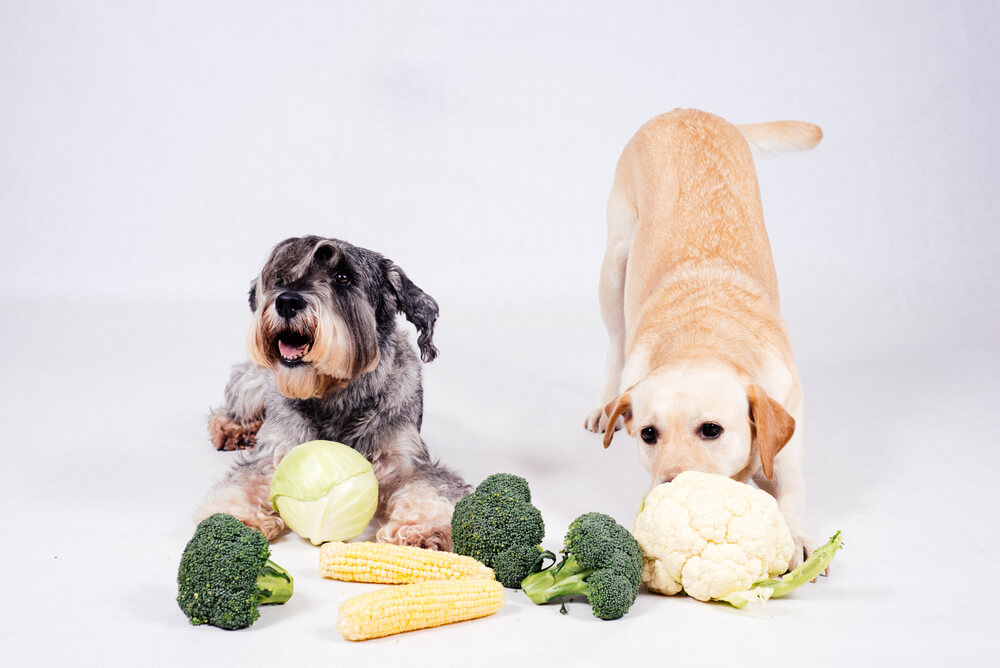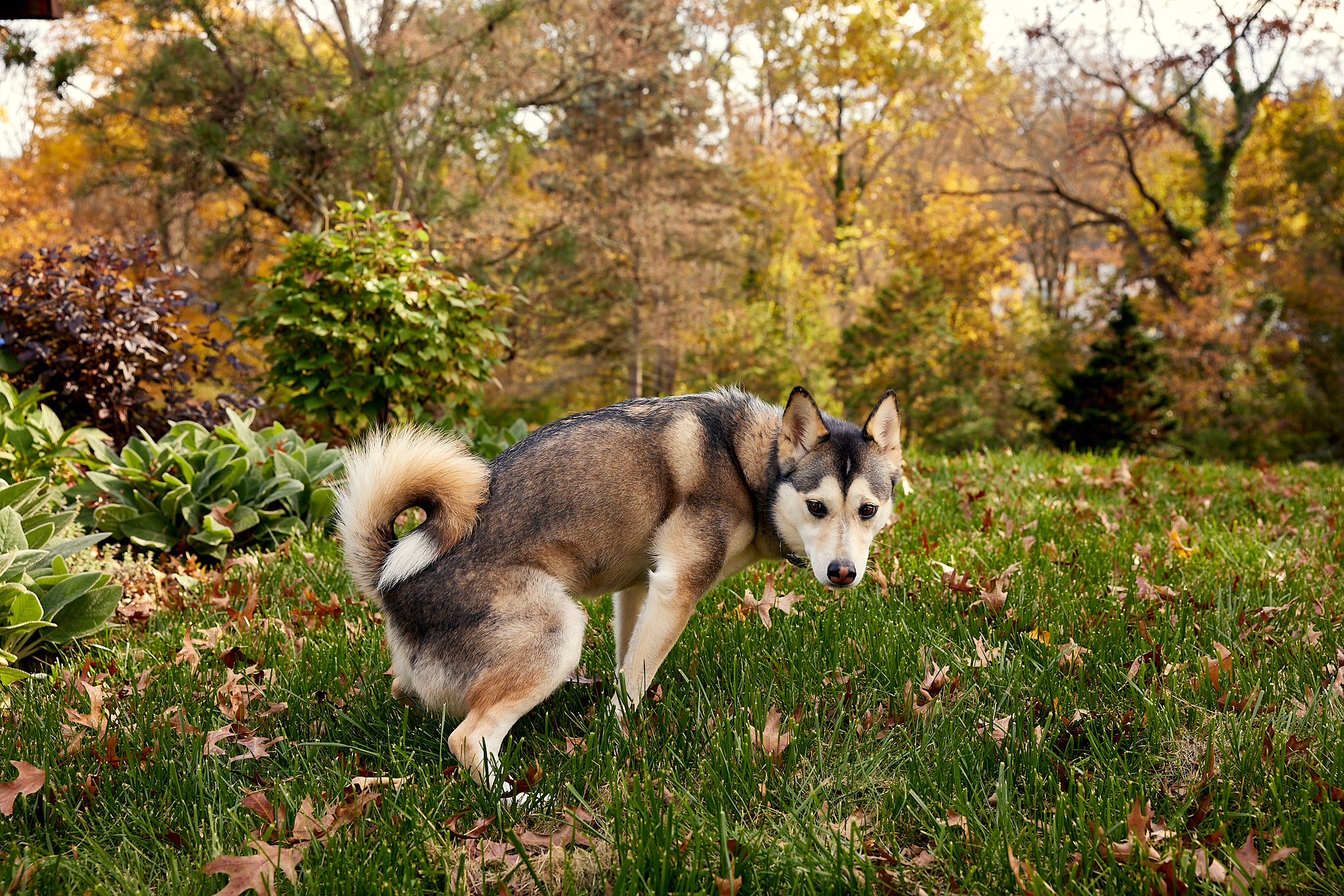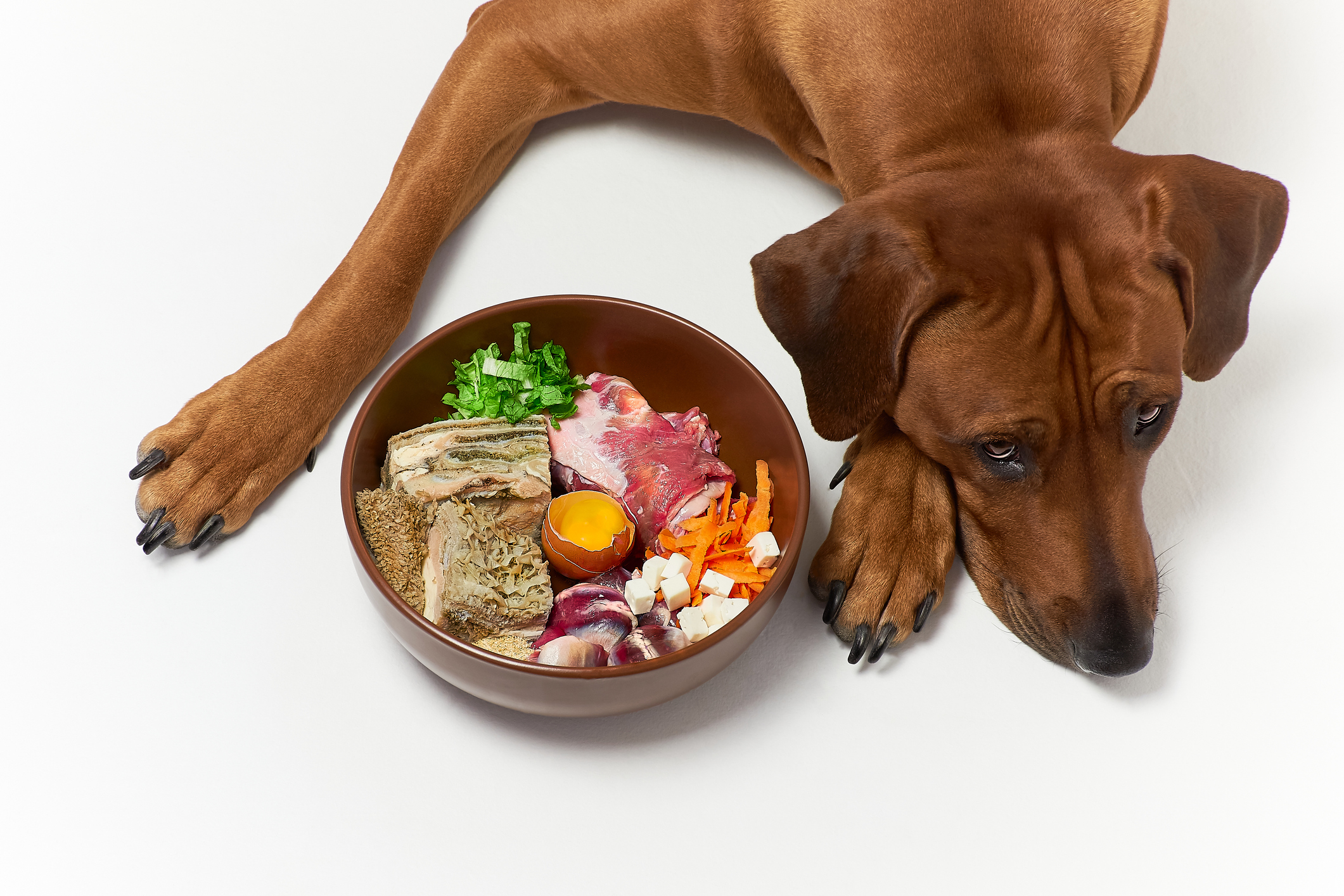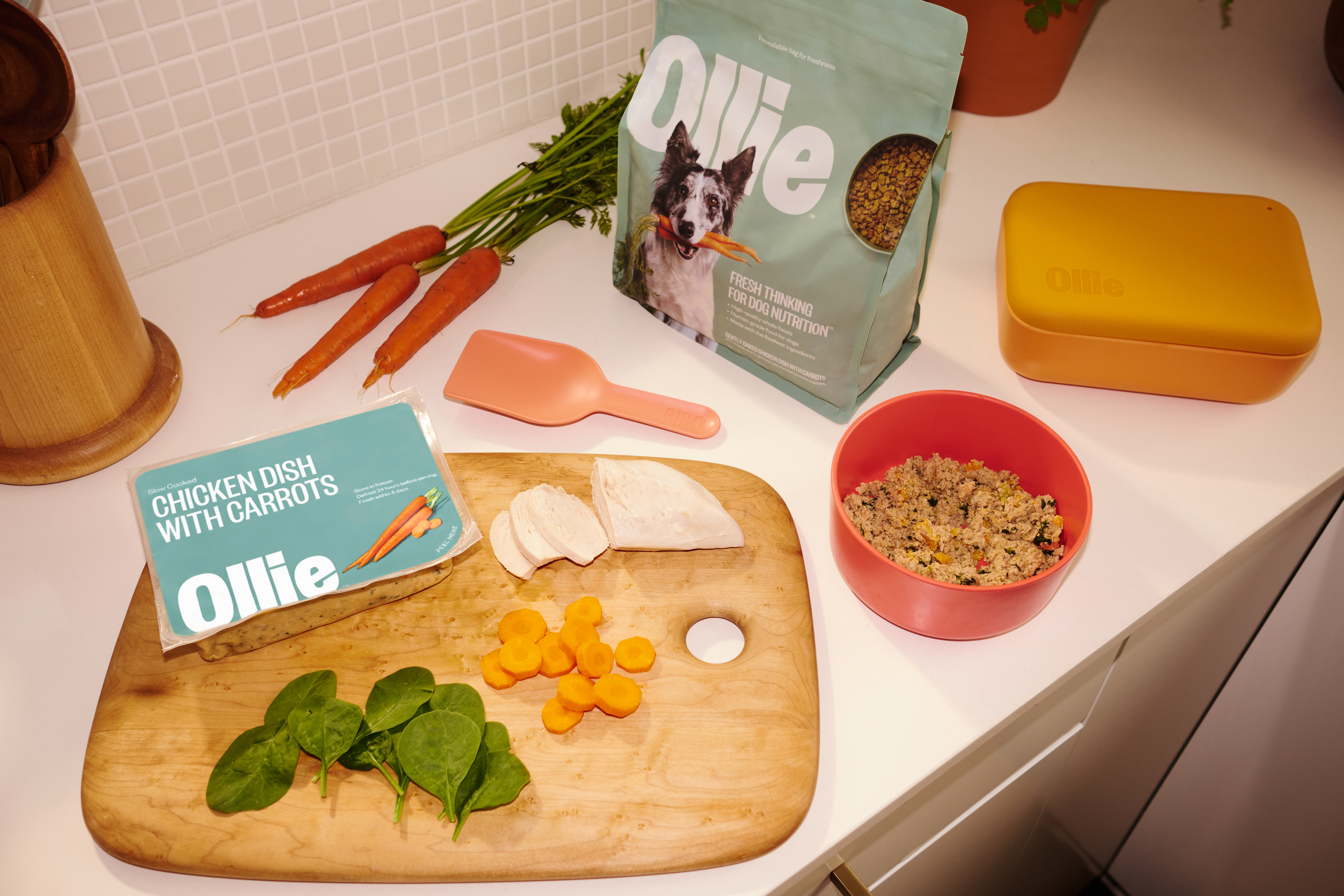Hey Ollie blog readers! We’re offering you an exclusive 60% OFF your starter box! Try now!
Many vegan pet parents, or would-be dog owners wonder: Is it okay for my dog to eat vegan dog food? The answer is yes—sort of—but almost no vet would recommend a strict vegan diet for your dog. Nutritionally balanced vegan dog food is difficult to prepare, and if it’s not formulated properly, it can lead to serious health complications in your dog. The larger point, however, is that dogs just go crazy for meat, and who are we to tell them what to love?
What is Vegan Dog Food?
Vegan dog food goes a step beyond vegetarian dog food, eliminating not just meat and fish, but all animal by-products. This means that vegan dog food is formulated with no eggs or dairy. While it’s difficult to keep a dog healthy on a vegetarian diet, removing these other protein sources make a vegan diet for dogs all the more challenging.
Can a Dog Survive on Vegan Food?
Technically, yes! A dog can survive on vegan dog food. In contrast to cats who are obligate carnivores, meaning they must eat meat in order to survive, dogs are true omnivores. Scientists argue that one of the factors that allowed dogs to evolve from wolves was their ability to eat more plant matter. Also, unlike cats, dogs are able to create vitamin A and other essential vitamins and nutrients from plant sources.
It’s very difficult to create a balanced vegan diet for dogs that meets all of their nutritional needs, but it is possible. Vets warn that homemade vegan dog food is especially risky–a balanced homemade diet is challenging even with the addition of meat–and that a dog on a vegan diet almost always requires some
Should Your Dog Go Vegan?
Gary Weitzman, DVM, President of the San Diego Humane Society and author of the book The Complete Guide to Pet Health, Behavior, and Happiness says, “Your dog can live, but I really think it’s the wrong thing to do. Dogs love meat and we are responsible for giving them the happiest lives possible.” If you’ve ever seen how a dog reacts to a roast chicken, you know what Weitzman means.
In Natural Dog Care, Bruce Fogle, DVM, MRCVS, agrees. He says, “If you plan to feed your dog in this way for ethical reasons, think seriously before transferring your own beliefs onto the lifestyle of another species that depends upon you for its care, well-being and quality of life.”
While the primary reason dogs are put on vegan diets is the pet owner’s personal beliefs, vets occasionally recommend a vegan diet due to canine allergies. This is quite uncommon and the diagnosis should only be made by a professional.
Risks of Vegan Dog Food
There are also some health risks associated with feeding a dog a vegan diet. Dogs typically get the vast majority of their protein, amino acids, calcium, phosphorus, B vitamins, and iron from the meat in their diet. If a dog’s diet is deficient in any of these nutrients, their health can suffer. Aside from visible changes like brittle hair and dry, peeling skin, dogs may suffer from hormone imbalances, a compromised immune system, depression, and decreased brain, eye, and heart function.
The Ollie blog is devoted to helping pet parents lead healthier lives with their pups. If you want to learn more about our fresh, human-grade food, check out MyOllie.com.
Tagged As:

The nutrition your dog needs,
the food they want.

Enjoying our articles? Subscribe our Newsletters and get new articles directly to your inbox
You might also like
3 July 2025
5 MINS READ
How Fresh Food Can Help Your Dog Have Perfect Poops
As a pup parent, you’re likely very familiar with your dog’s bathroom habits. While it may not be the most glamorous part of taking care of your pup, a dog’s stool can be one of the most dir…
by Ollie Pets
3 July 2025
5 MINS READ
Understanding the Risks of Raw Dog Food
When it comes to choosing the right diet for your dog, understanding the full picture is crucial for making an informed decision. In this article, we’ll dig deeper into what defines a raw diet, …
by Ollie Pets
3 July 2025
4 MINS READ
Understanding a Balanced Diet for Your Dog
As a dedicated pet parent, you want to provide the best for your dog, and that starts with their food bowl. We all understand the basics of a balanced diet for ourselves, but what does that look l…
by Ollie Pets







